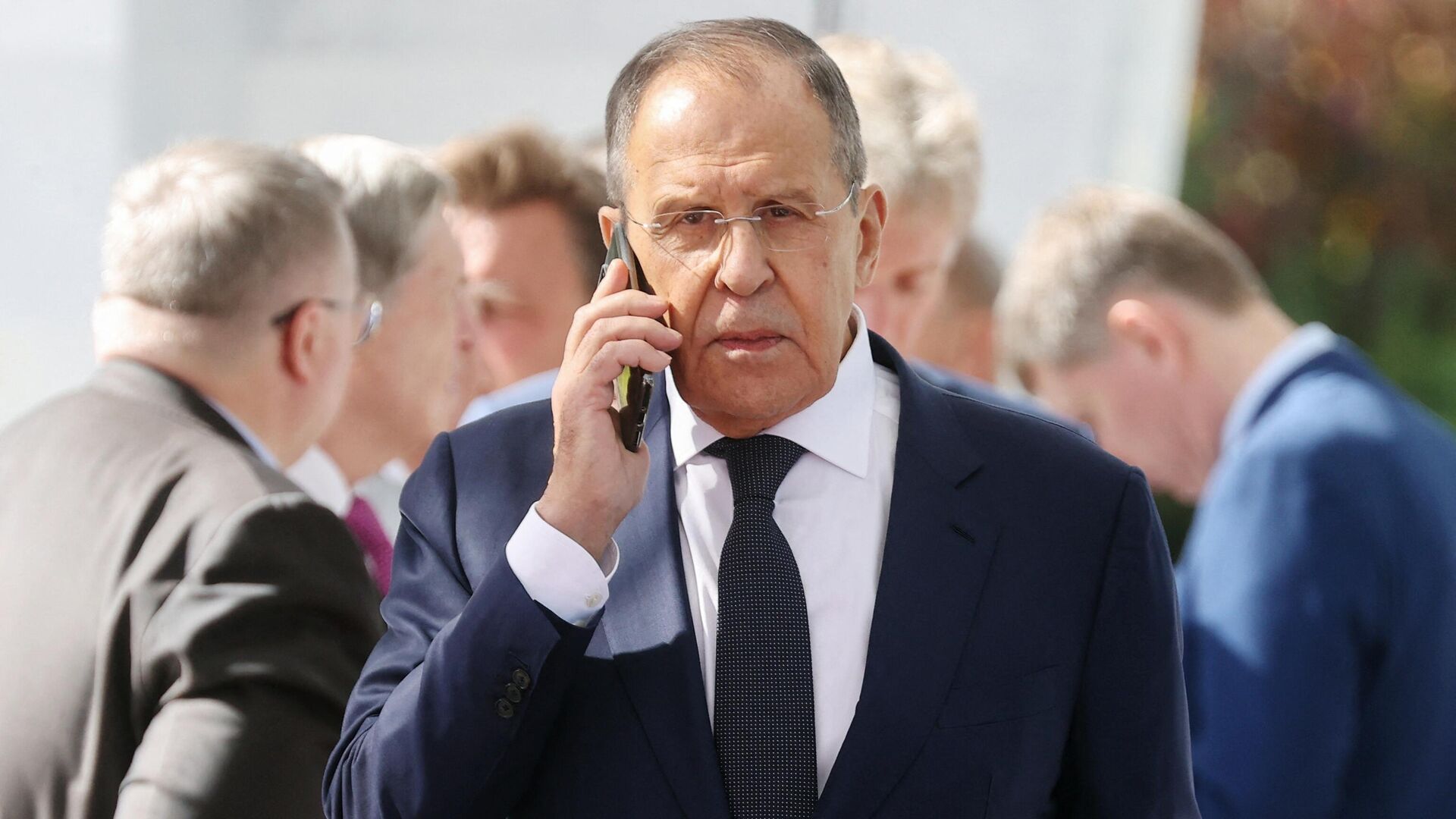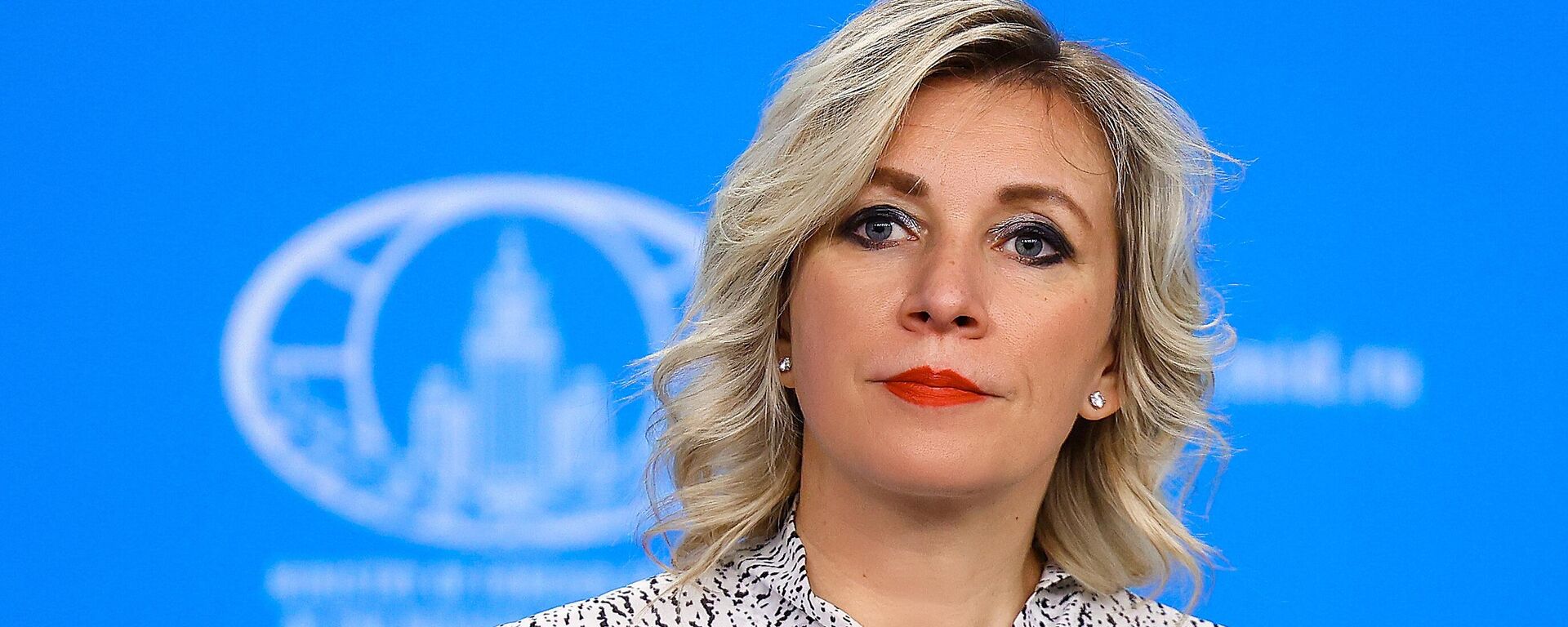De-Dollarization Processes Will Increasingly Gain Momentum, Russian FM Lavrov Says
09:20 08.11.2023 (Updated: 12:29 08.11.2023)

© AFP 2024 SERGEI KARPUKHIN
Subscribe
The drive to use national currencies instead of the US dollar has become a global trend, supported by Russia and a number of African countries including international alliances, such as the BRICS bloc.
The process of de-dollarization will increasingly gain momentum, Russian Foreign Minister Sergey Lavrov said.
"A gradual and steady reduction in the share of the dollar and the euro is being noted [...] The processes of de-dollarization will increasingly gain momentum," Lavrov said during the ambassadorial roundtable on the Ukrainian settlement.
He noted that the process of transition to national currencies will involve the largest economies: such as China, India, Turkey, UAE, Brazil, Saudi Arabia, Argentina, Kenya and Egypt.
The top diplomat also commented on US foreign policy, noting that Washington is bankrupting its European "vassals" but continues to buy uranium and critical materials from Russia.
"While forcing the EU to abandon everything Russian, Washington continues to buy uranium and other critical materials from Russia," Lavrov said.
He stressed that the US is "forcing European companies with its self-serving laws" to abandon Russian energy resources in favor of expensive American LNG.
The Russian energy boycott and price cap have dealt a serious blow to global energy security, the foreign policy chief added.
He stressed that such steps by the West have led to the disruption of historically established supply chains, the redistribution of global energy flows and the growth of transaction logistics costs.
Lavrov also raised the issue of the Nord Stream explosion, saying that Russia still cannot get a clear answer from the West on the investigation of the incident.
"We still can't get a clear answer on Nord Streams, who is investigating this attack and how, it's been more than a year. Neither Germany, nor Norway, nor Sweden, which are involved in these investigations on a national level, could tell us anything clear and reasonable," the minister said.
He added that the incident had finally undermined Europeans' hopes of getting cheap gas.
In addition, the minister noted that the purpose of Western sanctions against Russia is to provoke unrest and create resentment among citizens.
"The goals [of the sanctions] are not hidden - to undermine the Russian economy, to force the political leadership to abandon an independent line in foreign affairs, to turn the population against the authorities, this is a directly declared goal," Lavrov remarked.
European business loss has reached 250 billion euros over the past one and a half year as a result of sanctions against Russia, according to the most conservative estimates, Lavrov revealed.
Grain Deal
As for the Black Sea grain initiative, Lavrov noted that the Russian part of the deal is absolutely "at zero," and the UN's efforts are yielding nothing.
"Our part of the package, it is absolutely 'at zero.' We see the efforts of [UN Secretary General Antonio] Guterres, UNCTAD Secretary General Grynspan, but these efforts bring nothing, because the West stubbornly, looking you in the eye, in this case, the UN Secretariat staff, says that no sanctions have been imposed against food and fertilizers from Russia," the minister said.
Lavrov called the case "another example of Western lies."
The Black Sea Initiative, signed by representatives of Russia, Turkey, Ukraine and the UN on July 22, 2022, allows the export of Ukrainian grains and food, as well as fertilizers, across the Black Sea from three ports, including Odessa.
The grain deal expired on July 18, when Russia notified Turkey, Ukraine and the UN that it objected to its extension. Russian President Vladimir Putin noted that despite the UN's efforts, the terms of the deal regarding Russia were not being met because Western countries were not going to keep their promises.
Putin repeatedly pointed out that the West exported most of Ukraine's grain to its own states, and the main goal of the deal was to supply grain to the countries in need, including African countries and it was never implemented.

